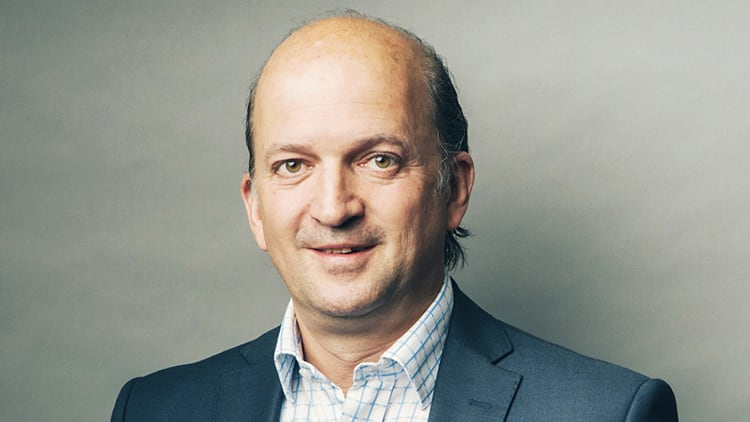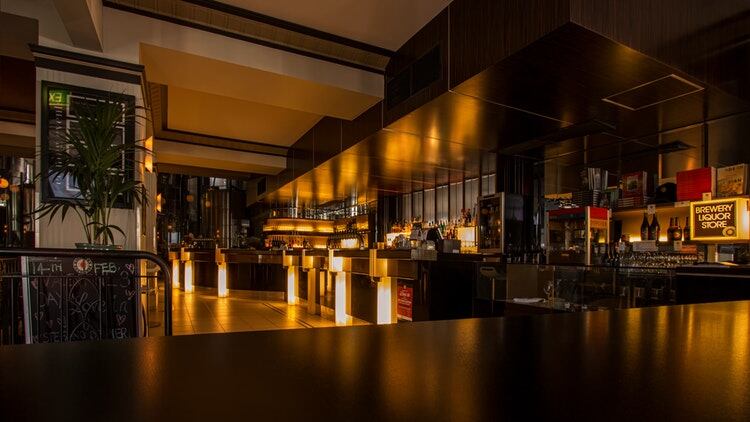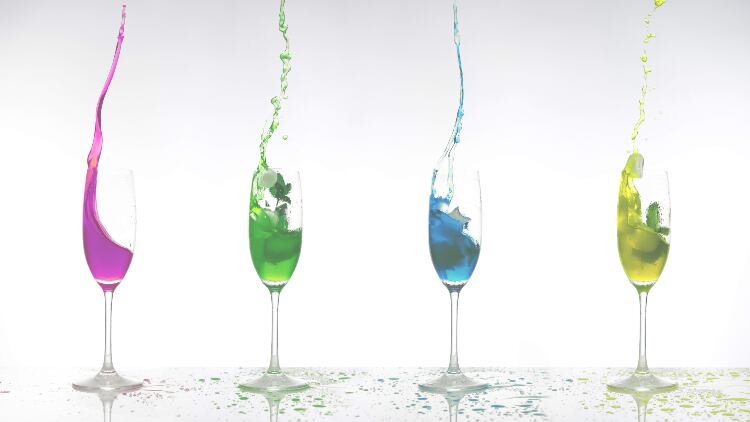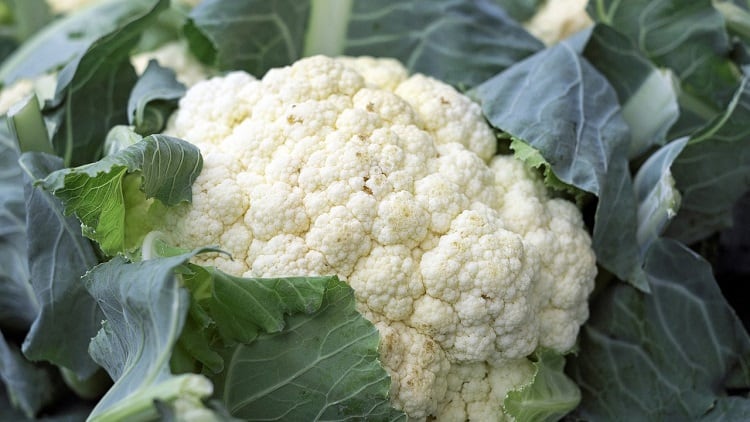A chance job opportunity turned into a lifelong passion for Saunders. Here he talks about his return to the business, his passion for excellence in the on-trade and how the sector has changed. Just don’t order him a 250ml serving of wine...
"I don’t have a wine exam or a university degree,” says Michael Saunders, CEO of Bibendum, “I just sort of landed in the business and managed to cling on.”
As one of the first employees of the fledgling Bibendum business in the early 1980s, he’s not done badly for someone “clinging on” and the lack of qualifications certainly hasn’t held him back – he’s been the driving force behind the business for well over 30 years now.
Having briefly stepped away, following the sale of the business to Conviviality, he’s now back at the helm, and is reenergised and ready to take the business to the next level.
“I’m a glass-half-full guy. I’ve come in completely refreshed, and believing there’s a serious opportunity at our fingertips.”
And he’s certainly got the experience to lead the company into a more positive future, following a choppy few years that saw the business snapped up by C&C following the collapse of Conviviality.
Teenager lands job
Saunders’ return to the business following the C&C purchase made sense, he says: “I’m not saying in any way I’m good or not, but I pretty much knew all the staff because they’d worked for me.
"I knew all the suppliers and pretty much all the customers and I was immediately available. I could come in, literally, the next day and needed no induction.”
Saunders originally joined Bibendum not long after it started up as a shop in London in 1983: “I’d landed back in London at the tender age of 18 and needed a job. Someone I know had abrother who was starting Bibendum and it had only been open a couple of months.
"There were only two of them and they need[ed] an extra van driver, floor sweeper, shopkeeper and bottle uncorker!
“I’d had a small job in the trade, but knew next to nothing, and some would say that remains the case! I had no vocational interest in the wine trade particularly, but I’ve always had an interest. I’ve always drank far too much.”
That move certainly proved a positive one for both the company and Saunders, as he quickly moved up to lead the business to great success after taking over ownership with a management buyout in the late ’80s.
It meant a lot of hard work: “We were working hours that today’s generation would think were completely mad.
“It was originally a wine warehouse, but full of probably the greatest collection of wine the UK has ever seen. We then moved into trade sales – I won the local account for a restaurant Odette’s, which is still a customer today.
“We were selling virtually nothing in those days. If a customer happened to walk into the shop, we broke open a bottle of Champagne, let alone if they bought anything.”
That shift into trade sales laid the foundations for the future for the business, and the company has gone on to work with leading hospitality operations throughout the UK.
Partnership expertise
But it’s Bibendum’s partnership approach that Saunders feels has really set his company apart, along with industry-leading investment into insight into the wine market.
“We collect data from all over the place, we’re delivering to 35,000 licensed outlets a week, so we can collate all that and can tell customers exactly what’s going in the on-trade all around the country. Importantly, we use that to help our customers make better decisions.”
That coupled with dedicated training and advice for their customers, meant the company has established strong relationships throughout the trade and aims to ensure it helps those businesses grow their wine sales.
“I spend quite a lot of my time, trucking round the country, talking to people about how they need to convert to the true faith of Bibendum, because I think we can help them.
“We can help them do better business by making their wine order correct, and by which I do not mean premium, I mean matching the right wines to the right prices to the right offering.
“We do that with this knowledge of the market that we have.”
And that kind of advice is key in a market that faces significant headwinds.
“Wine is in a slight decline now, and we’re at a bit of a crossroads at the moment. I don’t think we’re bringing younger people into the category, that’s a problem but I don’t think it’s just the
trade’s fault, it’s been a bit of a cash cow for the Government, and they’ve raked it in. As a result, there isn’t such a thing as inexpensive wine anymore.”
He also points out that another reason the industry isn’t as healthy as it used to be is down to oversupply.
“We’ve got oversupply in terms of numbers of products and numbers of suppliers and not enough people making enough money – it’s not a very profitable sector to be in, so I do believe we’ve got a slow motion car crash ahead of us and, for industry, that gives me cause for concern. I am ringing a slight alarm bell over the medium term of the industry.”
Suppliers demand
He adds: “Going into the distant past, the ’80s and early ’90s, the thing that was different was wine was much more affordable. The top-end wines, that I was able to, either with clients or by myself, drink, are now wines that I couldn’t possibly think of drinking now. And that’s a shame.”
He also says many people aren’t doing a good enough job on wine and that’s leading to poor consumer experiences.
“I blame a lot of the suppliers. Taste what they’re selling to these pubs and it’s disgusting and it’s inexcusable. People need to make more effort to look after their customers, it’s not complicated.”
He says he doesn’t blame bar employees for the difficulties in wine: “Don’t get me wrong, I’m not blaming the staff in any outlet, they’re working their nuts off.
"Operators need to make the collateral do the work for you – don’t have rows of dusty spirits bottles behind the bar that no one has touched in a million years.
“I also have a passionate loathing of 250ml glasses. It’s a rotten serve at any level, anyway you look at it, for quality, for wellbeing, it’s just not right.”
He says when a customer asks what drink a bartender recommends, “the last thing they’re going to suggest is a glass of wine, because they can’t personalise it or put any theatre to it”.
“They’ll say have a gin and tonic, and then it’s great, the customer asks what’s the gin, what’s the tonic and there’s interaction there.
“But if we can do it with gin, why can’t we do it with wine? I blame the supplier and I just think the onus is on us to work with partners to bring that to the fore.
“It’s our job to demystify it, for the young people behind the bars. They probably don’t even drink wine, so how do we make it fun for them and get them engaged with it?”
So while there are plenty of challenges ahead, Saunders has certainly enjoyed his return to the Bibendum fold: “I wasn’t expecting to do this, but I would say that it’s probably been one of the most rewarding years of my life.
“To come back in, I thought I knew where Bibendum was maybe slightly worse than I thought, but to be where we are now, 12 to 13 months on, I’m just so proud of what the team here has achieved, in really adverse circumstances – and the atmosphere in here is electric most of the time because people know they’re doing something quite special. What they’ve achieved is incredible.”




